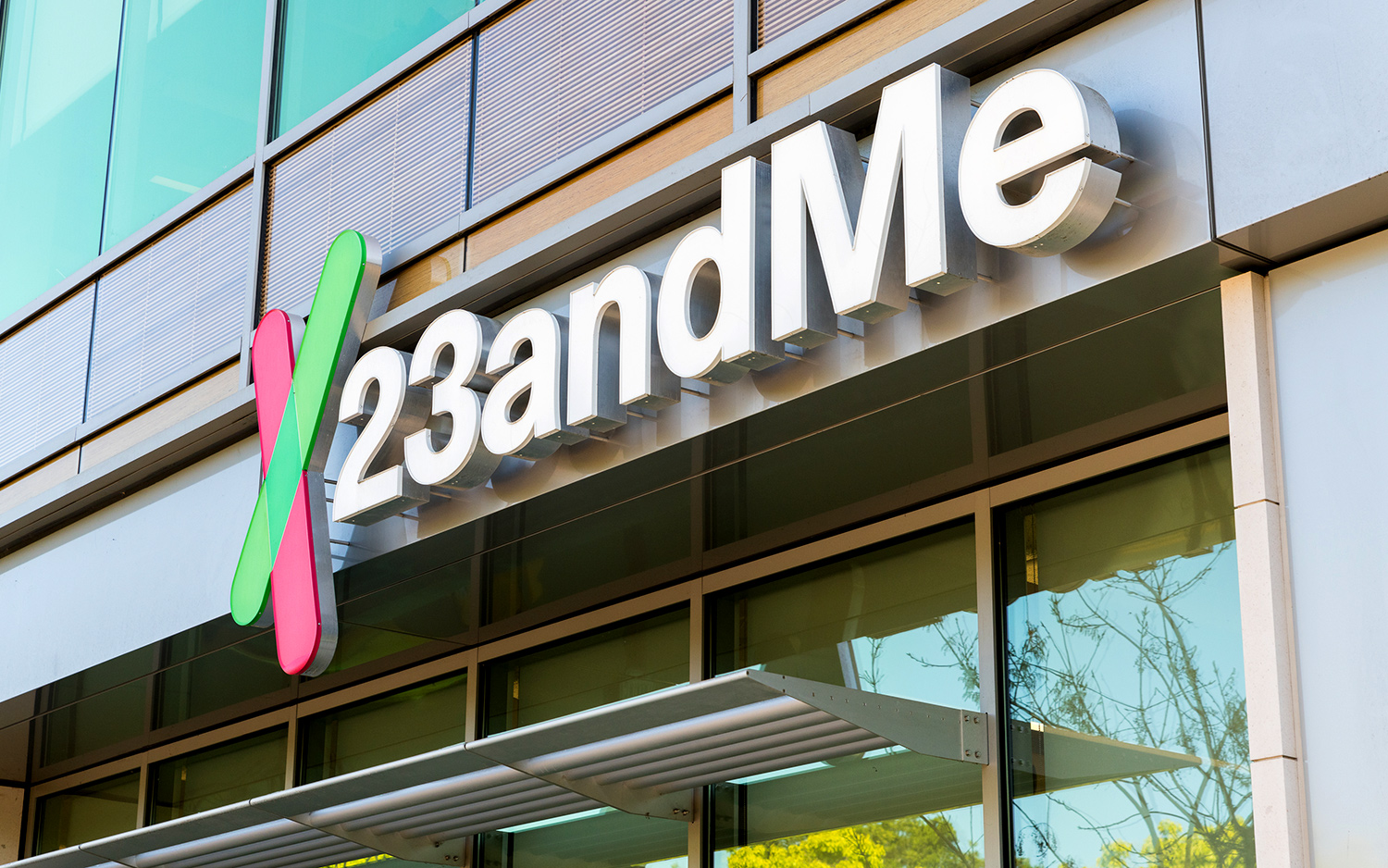23andMe Is Sharing Its 5 Million Clients' Genetic Data with Drug Giant GlaxoSmithKline

Get the world’s most fascinating discoveries delivered straight to your inbox.
You are now subscribed
Your newsletter sign-up was successful
Want to add more newsletters?

Delivered Daily
Daily Newsletter
Sign up for the latest discoveries, groundbreaking research and fascinating breakthroughs that impact you and the wider world direct to your inbox.

Once a week
Life's Little Mysteries
Feed your curiosity with an exclusive mystery every week, solved with science and delivered direct to your inbox before it's seen anywhere else.

Once a week
How It Works
Sign up to our free science & technology newsletter for your weekly fix of fascinating articles, quick quizzes, amazing images, and more

Delivered daily
Space.com Newsletter
Breaking space news, the latest updates on rocket launches, skywatching events and more!

Once a month
Watch This Space
Sign up to our monthly entertainment newsletter to keep up with all our coverage of the latest sci-fi and space movies, tv shows, games and books.

Once a week
Night Sky This Week
Discover this week's must-see night sky events, moon phases, and stunning astrophotos. Sign up for our skywatching newsletter and explore the universe with us!
Join the club
Get full access to premium articles, exclusive features and a growing list of member rewards.
Popular genetics-testing company 23andMe is partnering with drug giant GlaxoSmithKline to use people's DNA to develop medical treatments, the company announced in a blog post yesterday (July 25).
During the four-year collaboration, the London-based GlaxoSmithKline will use 23andMe's genetic database to zero in on possible targets and treatments for human disease.
"The goal of the collaboration is to gather insights and discover novel drug targets driving disease progression and develop therapies," GlaxoSmithKline said in yesterday's statement, where it also reported it was investing $300 million in 23andMe. [How Do DNA Ancestry Tests Really Work?]
It's not yet clear which conditions will be investigated during the collaboration, but one example showed how the collaboration might work: the two companies' previous collaboration on the gene LRRK2, which is linked to some cases of Parkinson's disease, Forbes reported.
Only about 10,000 of the 1 million Americans with Parkinson's disease have the disease because of LRRK2. So, GlaxoSmithKline has to test about 100 Parkinson's patients to find just one potential candidate. However, 23andMe has already provided 250 Parkinson's patients who have agreed to be re-contacted for GlaxoSmithKline's clinical trials, which may help the pharmaceutical company develop the drug much faster, Forbes reported.
However, not everybody is on board with 23andMe's new partnership. If a person's DNA is used in research, that person should be compensated, said Peter Pitts, president of the Center for Medicine in the Public Interest.
"Are they going to offer rebates to people who opt in, so their customers aren’t paying for the privilege of 23andMe working with a for-profit company in a for-profit research project?" Pitts said to NBC.
Get the world’s most fascinating discoveries delivered straight to your inbox.
In addition, even though 23andMe gets the consent of its customers to use their genetic data, it's unlikley that most people are aware of this.
"The problem with a lot of these privacy policies and Terms of Service is that no one really reads them," Tiffany C. Li, a privacy expert and resident fellow at Yale Law School’s Information Society Project, told Tom's Guide, a Live Science sister site. "You are paying to help the company make money with your data."
The new collaboration isn't the first time 23andMe's vast pool of genetic data has been mined by scientists. The San Francisco startup has already published more than 100 scientific papers based on its customers' data, according to yesterday's blog post, by Anne Wojcicki, 23andMe's co-founder and chief executive. In 2015, the company launched 23andMe Therapeutics, which focuses on developing "novel treatments and cures based on genetic insights from the consented 23andMe community," Wojcicki wrote.
23andMe has more than 5 million customers worldwide who have had their DNA analyzed for ancestral data. People who would like to close their 23andMe accounts can go here, but the company notes that "any research involving your data that has already been performed or published prior to our receipt of your request will not be reversed, undone, or withdrawn."
However, once a 23andMe account is closed, any spit samples that a person initially gave consent to be stored "will be discarded," the company said.
Original article on Live Science.

Laura is the managing editor at Live Science. She also runs the archaeology section and the Life's Little Mysteries series. Her work has appeared in The New York Times, Scholastic, Popular Science and Spectrum, a site on autism research. She has won multiple awards from the Society of Professional Journalists and the Washington Newspaper Publishers Association for her reporting at a weekly newspaper near Seattle. Laura holds a bachelor's degree in English literature and psychology from Washington University in St. Louis and a master's degree in science writing from NYU.
 Live Science Plus
Live Science Plus










